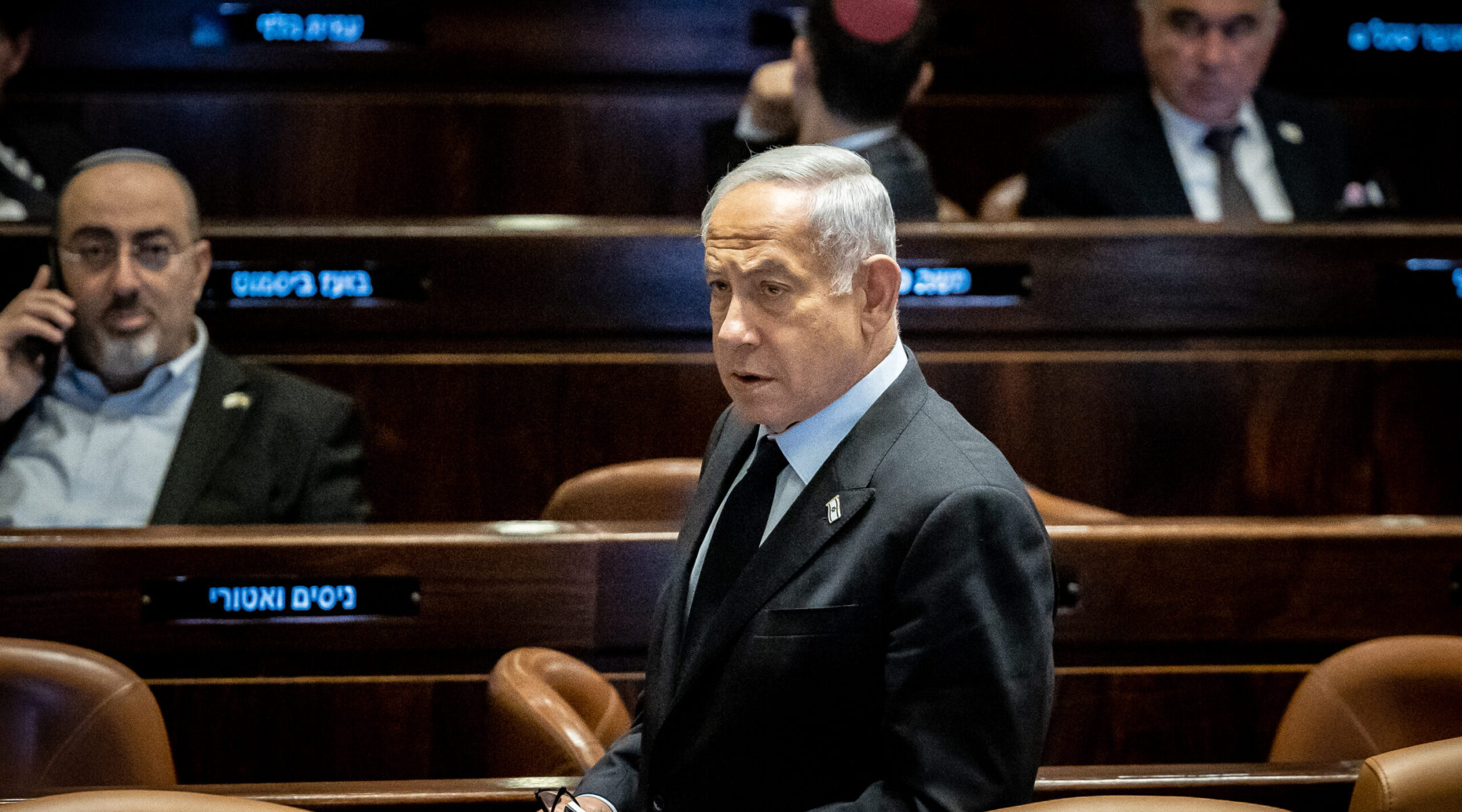(JTA) — The Israeli government is poised to advance its proposal to weaken the country’s Supreme Court, even as Prime Minister Benjamin Netanyahu said that he had dropped the plan’s most prominent provision.
The renewed legislative effort comes amid continued street protests against the proposed reform, which have taken place at least weekly since the beginning of this year. Widespread demonstrations in March — in addition to other threats of civil disobedience — led to a pause in the advance of the reforms and sparked negotiations between the governing coalition and opposition over the legislation’s content.
Those talks appear to have broken down, and now Netanyahu’s government appears ready to bring some of the bills back to the floor of Israel’s parliament, the Knesset. His coalition, which includes far-right parties, holds 64 of the Knesset’s 120 seats.
But according to Netanyahu, the reform will return to the table absent its most contentious provision, which would have allowed a bare majority of lawmakers to override Supreme Court decisions striking down laws. That proposal, known as the override clause, was at the heart of critics’ claims that the judicial overhaul would endanger Israeli democracy by sapping the court of its power. In an interview last week with the Wall Street Journal, Netanyahu said the override clause was “out” of the legislative package.
Instead, lawmakers will focus on passing a law that limits the Supreme Court’s ability to strike down governmental decisions it concludes are “unreasonable.” Earlier this year, the court used that justification to bar Aryeh Deri, a leading haredi Orthodox politician who has been repeatedly convicted of crimes, from being appointed to Netanyahu’s cabinet.
The legislation currently under consideration would reportedly strip the court of the power to strike down the decisions of nationally elected officials due to “unreasonableness.” The doctrine could still be used to strike down decisions of unelected government officials and local officials such as mayors, according to the Israeli publication Ynet.
Netanyahu also pledged to advance a bill changing the makeup of the committee that appoints judges, a key portion of the proposed overhaul. A previous version of that bill would have given the governing coalition full control over judicial appointments, but Netanyahu said the new bill would be more limited.
He did not say anything about a piece of the reforms that passed one hurdle in February but has not advanced since. That legislation would bar the Supreme Court from striking down “basic laws,” Israel’s closest parallel to a constitution, in a move that some observers said could render the broader override clause unneeded.
Netanyahu’s pledges appear to have had limited effect on opponents of the overhaul. Gali Baharav-Miara, the Israeli attorney general, called the proposed “unreasonableness” law “a black hole that will damage democracy.”
Protest organizers said hundreds of thousands of people attended this weekend’s demonstrations, which took place across the country on Saturday night for the 26th week in a row. Protesters also vowed to gather at Ben-Gurion Airport’s bustling third terminal on Monday in protest of the overhaul. Police cautioned protesters against blocking the roads surrounding the airport, which a senior official characterized as a security risk.
Meanwhile, some of his right-wing allies in the government expressed disappointment about Netanyahu’s comments. In a meeting with his coalition partners Sunday, Netanyahu reportedly backtracked on his comments regarding the override clause.
“Surrendering to those who burn the Ayalon and call for civil unrest is a victory for violence and a loss for Israel,” tweeted Itamar Ben-Gvir, the far-right national security minister, referring to the Tel Aviv highway that has been a locus of protests.
Netanyahu’s statements garnered praise from the Jewish Federations of North America, which said it was “encouraged” by his pledge to drop the override clause. The group had come out against the override legislation earlier this year, and said in a statement on Thursday that “any reforms must leave intact a strong system of checks and balances, which is key to the democratic pillar of protecting minority rights.”
JTA has documented Jewish history in real-time for over a century. Keep our journalism strong by joining us in supporting independent, award-winning reporting.






